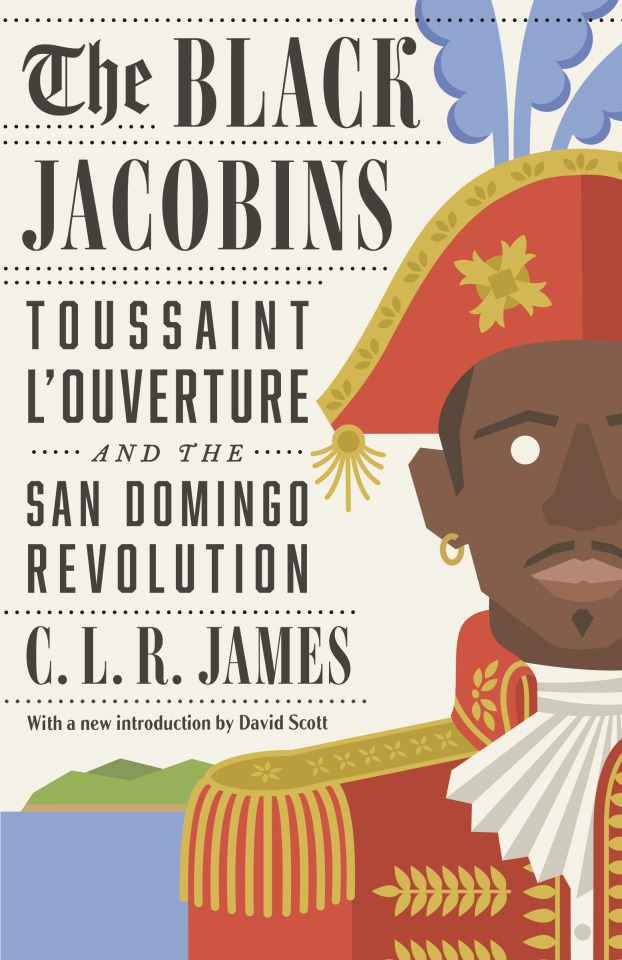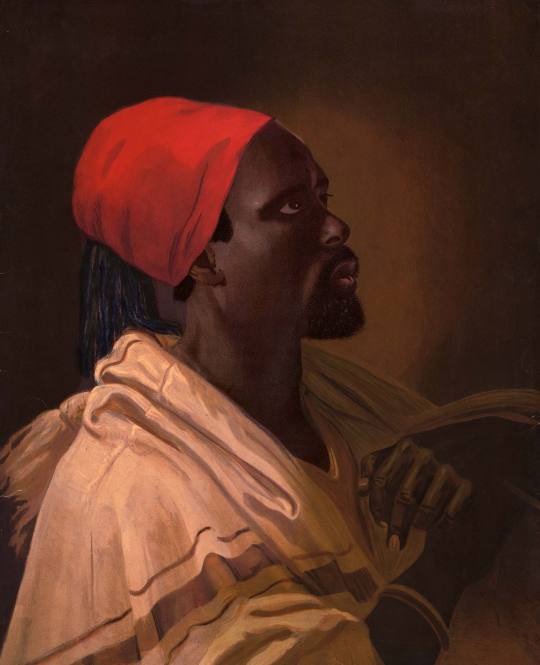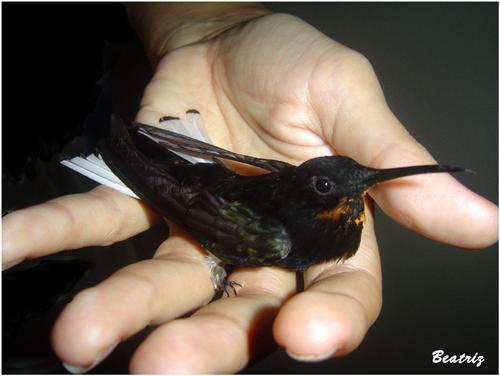#the black jacobins
Text
It was not Paris alone but all revolutionary France. ‘Servants, peasants, workers, the labourers by the day in the fields’ all over France were filled with a virulent hatred against the ‘aristocracy of the skin’. There were many so moved by the sufferings of the slaves that they had long ceased to drink coffee, thinking of it as drenched with the blood and sweat of men turned into brutes. Noble and generous working people of France and those millions of honest English Nonconformists who listened to their clergymen and gave strength to the English movement for the abolition of slavery! These are the people whom the sons of Africa and the lovers of humanity will remember with gratitude and affection, not the perorating Liberals in France nor the ‘philanthropy plus five per cent’ hypocrites in the British Houses of Parliament
The Black Jacobins, C.L.R James
129 notes
·
View notes
Quote
When three centuries ago the slaves came to the West Indies, they entered directly into the large-scale enterprise of the sugar plantation, which was a modern system. It further required that they live together in a social relation far closer than any proletariat of the time. The cane when reaped had to be rapidly transported to what was factory production. The product was shipped abroad for sale. Even the cloth the slaves wore and the food they ate was imported. The Negroes, from the start, lived a life that was in essence a modern life.
C. L. R. James, The Black Jacobins: Toussaint L’Ouverture and the San Domingo Revolution
77 notes
·
View notes
Text
The advantages of being white were so obvious that race prejudice against the Negroes persisted in the minds of the Mulattoes who so bitterly resented the same thing from the whites. Black slaves and Mulattoes hates each other. Even while in words and, by their success in life, in many of their actions, Mulattoes demonstrated the falseness of the white claim to inherent superiority, yet the man of colour who was nearly white despised the man of colour who was only half-white, who in turn despised the man of colour who was only quarter-white, and so on through all the shades. The free blacks, comparatively speaking, were not many, and so despised the black skin that even a Mulatto slave felt himself superior to the free black man. The Mulatto, rather than be slave to a black, would have killed himself. It all reads like a cross between a nightmare and a bad joke. But these distinctions still exercise their influence in the West-Indies to-day.
C.L.R. James, The Black Jacobins
#black lives matter#racism#colorism#biracial#clr james#c.l.r.james#the black jacobins#james#1963#clr james 1963
10 notes
·
View notes
Text

The Black Jacobins: Toussaint L'ouverture and the San Domingo Revolution
By C.L.R. James.
2 notes
·
View notes
Text
Who is CLR James?
Cyril Lionel Robert James (1901-1989), commonly known as C.L.R. James, was a Trinidadian Marxist, historian, and writer. He was an influential figure in the Caribbean and African American left, as well as a key member of the Trotskyist movement. James is best known for his book "The Black Jacobins," a history of the Haitian Revolution, which is widely regarded as a seminal work in the field of African and Caribbean studies. He also wrote extensively on Marxist theory, cricket, and literature. James was a highly influential and important figure in the anti-colonial and Pan-African movements of the mid-twentieth century.
How did CLR James extend Marxist theory to encompass the struggles of enslaved and colonized people?
CLR James extended Marxist theory to encompass the struggles of enslaved and colonized people by emphasizing the importance of understanding the specific histories and cultures of these groups. He argued that the experiences of these groups could not be reduced to a simple economic analysis of class struggle, but needed to be understood in their own right as unique struggles against domination and oppression.
For example, in his book "The Black Jacobins," James applied Marxist theory to the Haitian Revolution and argued that the struggle of the enslaved people in Haiti was a unique historical event that could not be reduced to a simple analysis of class struggle. He argued that the specific cultural and social conditions of slavery in Haiti, as well as the unique cultural and historical background of the enslaved people, were important factors in shaping the nature of their struggle for freedom.
In this way, James emphasized the need for Marxists to take seriously the struggles of colonized and enslaved people as distinct and unique struggles against oppression, rather than simply as part of a broader class struggle against capitalism.
#clr james#c.l.r. james#cyril lionel robert james#marxism#caribbean studies#haiti#the black jacobins#chatgpt
1 note
·
View note
Text
reading about the French "revolution" and all the time they spent arguing with one another is a lot funnier when you remember they were speaking in French the whole time
0 notes
Photo

Black Jacobin (Florisuga fusca)
© Stephen Jones
2K notes
·
View notes
Text

Toussaint L'Ouverture by George De Baptiste.
#George De Baptiste#haiti#République d'Haïti#Repiblik d'Ayiti#french revolution#jacobins#haitian revolution#Révolution haïtienne#Révolution française#black lives matter#Liberté ou La Mort
130 notes
·
View notes
Text
JACOBIN FICTION CONVENTION MEETING 37: CHÉVALIER (2022)

1. The Introduction
Well, hello there, Citizens! I’m back and I hope you missed me! Sorry for the multiple delays and all, but luckily I’m back at it now!!!
Okay, so this movie has been on my radar ever since it got announced. A story featuring a real Black man who lived during Frev? Sign me up! This has excellent potential and also, to my knowledge, at least a partially Black crew so we get more representation of marginalized groups in crews and on the screen!
At least, those were my thoughts before I actually watched the movie, but we’ll get to whether it was a good media piece later.
I found the movie on Russian language streaming websites, but it’s available on Amazon Prime and Disney Plus for those who would like to watch the original English version.
This review is dedicated to @idieonthishill , @vivelareine (who has a review that unpacks the movie from a historical pov and is welcome to add to the review 😊), @theravenclawrevolutionary , @sansculottides , @citizentaleo , @saintjustitude , @avergehistoryenjoyer , @lanterne and @jenxiez .
Okay, let the Jacobin Fiction Convention reopen!
2. The Summary
The movie tells a story of a real man, Joseph Bologne aka Chévalier de Saint-Georges. Recognized son of a white French nobleman and an enslaved black woman, Bologne must navigate the cutthroat world of the Parisian high society, dealing with racism and trying to reconcile his “white” upbringing with his African roots.
Sounds interesting, but let’s see how the premise was handled.
3. The Story
The Introduction scene - a musical duel between Mozart and Bologne, was actually quite good in my opinion. So were the other beginning scenes of kid Bologne growing up in France as an aristocrat and being bullied by his white peers, plus his father telling him not to let society break him.
These scenes establish quite well that Bologne has to carve out a place for himself among French nobility and make a lot of effort to get even a hint of acceptance. Sounds like a nice setup, right? Well, unfortunately at times Bologne in the movie doesn’t seem to have much agency at all.
For example, his title is granted to him by Marie-Antoinette basically on a whim, handed to him on a silver platter because the queen was impressed by his fencing skills, which in my opinion isn’t enough to show a character who has to work hard to be accepted. I think it would’ve been better if Bologne had at least several impressive fencing performances to prove himself and show more of his skills.
On the flip side, there are characters who have a bit too much agency. For example, in the story it’s Marie Antoinette who is calling all the shots and giving all the orders in France, even though Louis is alive and well. It’s definitely jarring to see how people say “by the order of the queen” when the king should be the one mentioned instead.
I didn’t care much for the love triangle storyline, but it’s my own personal preference and also the fact that it, like many parts of the story, isn’t all that nuanced. So yeah, very bland and boring.
Yes, Citizens, unfortunately nuance has officially left the chat, especially when it comes to the main character. See, at first Bologne doesn’t give a shit about poverty and famine plaguing France. He is enjoying his cushy life and his friendship with the queen of France instead. However, you know what makes him join the Jacobins? A fucking PERSONAL FALLING OUT WITH THE QUEEN. Not promises of abolishing slavery or granting rights to black people, not his own ideals… Just fucking pettiness!
It would have been much better if he didn’t have a falling out with Marie Antoinette and signed up for fighting with the Republicans because he genuinely wanted to do what was right, not due to personal beef. Especially since that was why he joined Frev in reality – the real Bologne made a choice to do the right thing simply because it seemed to be the right thing to him. Not out of petty desire to get back at the queen.
Also, the conflict between Bologne and his mother about how he is acting “too white”… eeeehh. To me it felt very anachronistic but maybe I’m wrong and there is more nuance missing because EVERYONE at court had to carry themselves in a certain way to make it. If you couldn’t do it, you were socially FUCKED. Besides, Nanon (the mother) and her friends crack really mean jokes about Bologne being “too white”, which is… well, an INTERESTING way to endear him to his mother’s culture…
The movie is juggling admittedly anachronistic theme about black culture, anti-slavery message, court drama and love triangles… and the juggling is done quite sloppily too, I’m afraid.
Also, just to illustrate how inaccurate this movie is, the events of 1789 are shown happening in 1776 for some reason, which shows just how much the creators didn’t give a shit about research.
Moving on.
4. The Characters
I really didn’t care for Bologne to be honest. He shows selfishness and pettiness, doesn’t have enough agency in the story and is also very inconsistent. After falling out with Marie Antoinette, he claims he defended her, which… he didn’t! At least it’s not shown in the movie! What the fuck happened to “show, don’t tell”?! Also, his incredible talents aren’t really shown in the way they could’ve been, more on that in the soundtrack section. A missed opportunity, really.
Nanon, Bologne’s mother, is a real embodiment of the themes of slavery and trauma present in the the movie. She merely exists to push him to embrace his African heritage and to remind him that he will never be truly accepted by other nobles. I honestly wish there was more to her character, because she ends up being little more than a walking theme embodiment.
Marie Antoinette here is a capricious, fair weather friend. She CLAIMS to support Bologne, but does it in indirect ways out of fear that nobles wouldn’t appreciate her openly backing a black man. Even though she is an absolute monarch so she can afford to show her support more openly. Actions speak louder than words, and she is clearly not a true ally of Bologne.
Marie Joséphe, Bologne’s love interest, is a woman trapped in a miserable marriage and yearning to act in Bologne’s operas. While I do sympathize with her, I believe that there really isn’t much depth to her either. We just don’t learn much about her. This is becoming a common theme…
Also, just as a side note while we’re talking about characters, many white characters in the movie are shown as mere flat caricatures. I can understand why, but, again, this doesn’t show nuance as in reality, while Bologne definitely had to deal with racism, he was not only accepted, but adored as a celebrity, but we don’t see that reflected in the attitudes of other people towards him. Because apparently the brains of the spectators will implode when they see nuance in a modern movie, it seems.
5. The Setting
Personally I wasn’t that impressed by the costumes or the settings. I’ve seen much better ones. Nothing bad, but nothing outstanding either.
6. The Soundtrack
Where the fuck is actual music from that time period?! Where is music by Bologne himself?! It’s a fucking missed opportunity and I don’t know what prevented the creators from including the music written by the MAIN DAMN CHARACTER into a biopic about him. A shame that they missed yet another opportunity.
7. The Conclusion
Honestly… I can’t say much when it comes to what this movie is fucking about. The story is bland, lacks nuance, doesn’t follow basic historical facts and is pulled in a million directions.
For a movie about an obscure figure, it doesn’t show much of the things Bologne was known for and at times even strips him of agency. We need to have better POC representation, because this is just not it.
The movie is mediocre, bland and forgettable. Don’t waste your time on it.
With that, I declare today’s meeting of the Jacobin Fiction Convention to be over. Thank you for your patience and support during this hiatus of mine.
Stay tuned and stay safe!
Love,
Citizen Green Pixel
#chevalier 2022#joseph bologne#jacobin fiction convention#french history#black history#french revolution#marie antoinette
30 notes
·
View notes
Text

[837/10,977] Black Jacobin - Florisuga fusca
Order: Trochiliformes (hummingbirds)
Family: Trochilidae
Subfamily: Florisuginae
Photo credit: Claudia Brasileiro via Macaulay Library
101 notes
·
View notes
Text

black jacobin (Florisuga fusca) by Beatriz Lima
11 notes
·
View notes
Text
just showed the first small draft of my br regency story to my teacher and he said: “well i think you need to reforce how problematic slavery is more often”. hello???? one would think the reader knows that slavery and sexism and racism and ableism are bad without the author having to tell them again and again! omg
#(have to specify it’s brazilian regency bc of the anglos…..)#also something about the gay experience not being realistic….. girl the is a lower class black gay man in 1830s brazil. i can’t possibly-#use modern understandings of sexuality with him hello!!!#this is the problem w writing historical fiction while your advisor (is that the right word?) knows shit about history tbh#basically he wants me to write a contemporary novel with contemporary characters (w contemporary ideas) that just coincidentally takes-#-place in the 1830s. the bridgertonification of it all#(something something it’s impossible that all the (usually wealthy) characters in your historical novel have perfect progressive opinions-#that never offend contemporary sensibilities. that would be like someone 200 years from now writing a book in which everyone is a radical-#-communist. it just doesn’t make sense. brazil was reactionaryland in the 1830s. you’d get called a jacobin for being a constitutionalist)
7 notes
·
View notes
Note
I'm unrecommending Vincent Cronin's Napoleon biography. While there's a lot of charm in reading a well researched history from someone so clearly in love with their chosen subject, it doesn't at all excuse omitting everything about Haiti.
Common issue (read: ideological necessity) with anyone trying to do an apologia and rescue Napoleon's reputation from a liberal perspective, honestly.
#I am once again asking all of you to listen to Mike Duncan's series on the Haitian Revolution#or#like#read The Black Jacobins#but being realistic#reply#circletofcircles#unrecomend me a book
10 notes
·
View notes
Text

“The rich are only defeated when running for their lives.”
― C.L.R. James, The Black Jacobins: Toussaint L'Ouverture and the San Domingo Revolution
#clr james#Black Revolutionary#trinidad#Historian#Black Jacobins#Ayiti#haitian revolution#Caribbean Writers
55 notes
·
View notes
Text

black jacobin (Florisuga fusca) by Yan Sanglard
0 notes
Text
Actually deeply disappointed that I don't know enough about cricket to make The Creative Endeavor a cricket AU, this sport is perfectly designed for being completely and utterly incomprehensible to people who Don't Know What The Words Mean
#why is silly a real name for a fielding position#i did start actually reading cricket stuff because i tempted the possibility of a shorter cricket au#and i have to say that all the words i read about it are in that awkward 'i understand like 80% of this but am still not quite sure'#there's a lot of numbers connected by short words and no context and i *think* i know what they refer to#anyways on the plus side i started reading clr james's beyond a boundary#aka cricket book that when i mentioned reading the black jacobins my dad was like oh i love that guy he wrote a book on cricket#anyways yeah i get why he was insane about it#would highly recommend there's all kinds of interesting stuff going on there#perce rambles#The Creative Endeavor and other aubreyad nonsense#i'm not actually sure that football is more comprehensible or if i've just been playing it since i was 5#though i do think bat-and-ball sports have a higher Confusion factor. baseball also has a lot of numbers and no context
1 note
·
View note